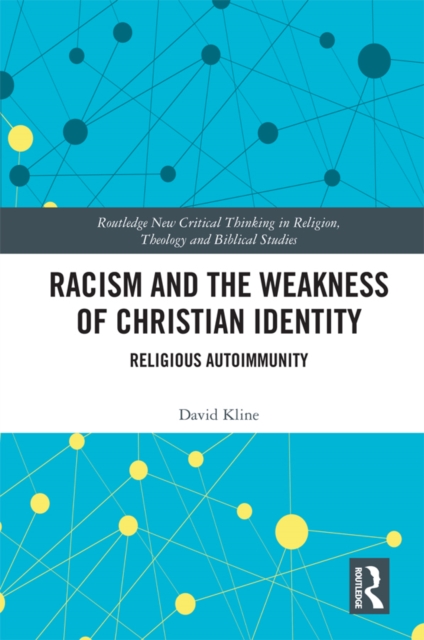
Racism and the Weakness of Christian Identity : Religious Autoimmunity EPUB
by David Kline
Part of the Routledge New Critical Thinking in Religion, Theology and Biblical Studies series
EPUB
Description
Despite the command from Christ to love your neighbour, Western Christianity has continued to be afflicted by the evil of racism and the acts of violence that accompany it.
Through a systems theoretical and deconstructive account of religion and the political theology of St.
Paul, this book traces how the racism and violence of modern Western Christianity is a symptom of its failure to secure its own myth of sovereignty within a complex world of plurality.
Divided into three sections, the book begins with a philosophical and critical account of what it calls the immune system of Christian identity.
Focusing on Pauline political theology as reflective of an inherent religious "autoimmunity" built into Christian community, a theory of theological-political violence is located within Western Christianity.
The second section traces major theoretical aspects of the historical "apparatus" of Christian Identity.
It demonstrates that it is ultimately around the figure of the black slave that racialized Christian identity becomes a system of anti-blackness and white supremacy.
The book concludes by offering strategies for thinking resistance against such racialised Christian identity.
It does this by constructing a "pragmatics of faith" by engaging Deleuze’s and Guattari’s use of the term pragmatics, Moten’s theory of black fugitivity, and Long’s account of African American religious production.
This wide-ranging and interdisciplinary view of Christianity’s relationship to racism will be of keen interest to scholars of Religious Studies, Theological Studies, Cultural Studies, Critical Race Studies, American Studies, and Critical Theory.
Information
-
Download - Immediately Available
- Format:EPUB
- Pages:228 pages
- Publisher:Taylor & Francis Ltd
- Publication Date:22/01/2020
- Category:
- ISBN:9780429589638
Other Formats
- Paperback / softback from £38.99
- Hardback from £130.00
- PDF from £35.09
Information
-
Download - Immediately Available
- Format:EPUB
- Pages:228 pages
- Publisher:Taylor & Francis Ltd
- Publication Date:22/01/2020
- Category:
- ISBN:9780429589638






